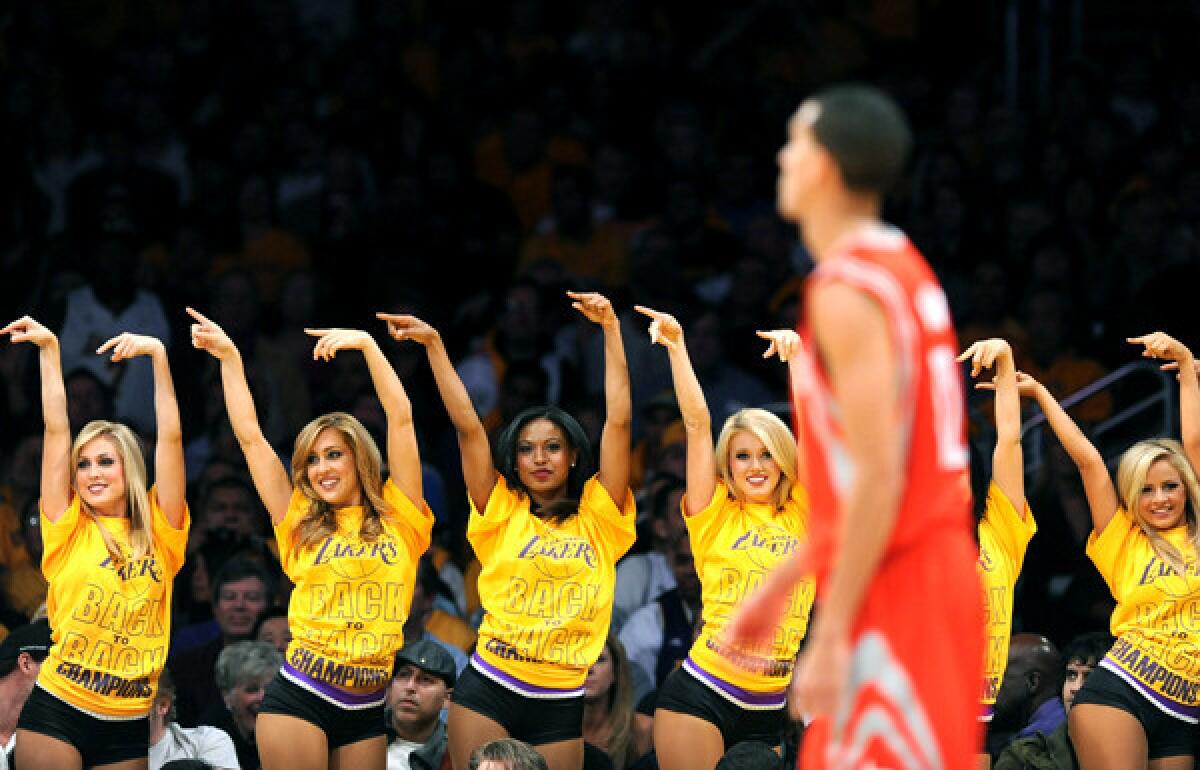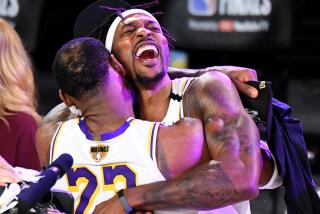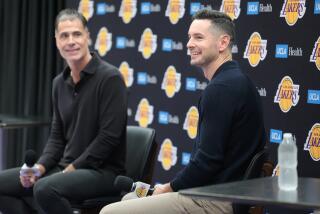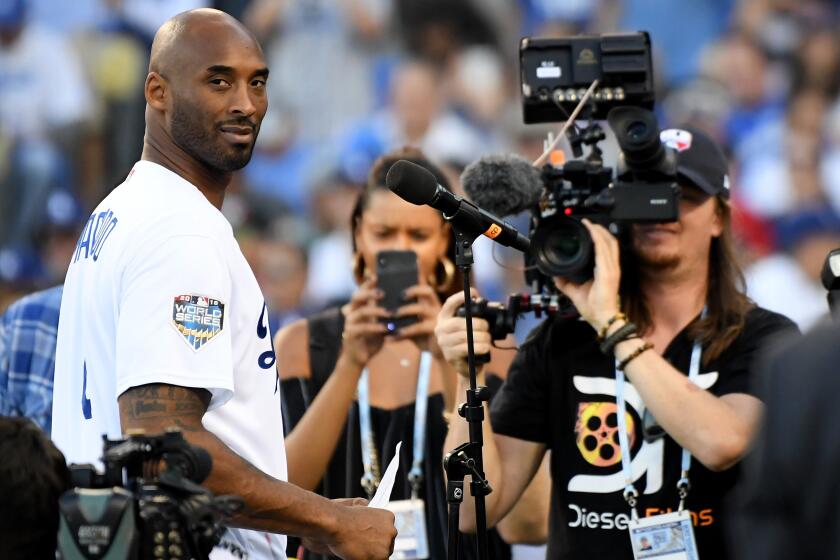Jerry Buss showed what Showtime could be worth

Jerry Buss brought 10 championships to Los Angeles with the Lakers and along the way he altered the way people experience professional sports.
“He changed the whole way that we went to a game: the Laker Girls, the whole fan experience, A-list people on the floor, the whole thing,” Magic Johnson said. “Dr. Buss is the reason why the NBA is thriving the way it is.”
When Buss purchased the Lakers (along with the Kings and the Forum) in 1979 for $67.5 million, he had a very specific vision.
“He understood the value of sports and its merger with entertainment,” said NBA Commissioner David Stern, who spoke at Buss’ memorial service.
It started immediately in 1979 with the Laker Girls — the league’s first dance team. Buss brought in live music, creating the Laker Band.
In a move that confounded other owners, Buss raised the price of courtside seats from roughly $15 a game to $60.
“He understood that you were underselling yourself if you didn’t price the house accordingly,” Stern said.
Those same courtside seats became a hot commodity and Buss made sure the celebrity of Hollywood was well-represented — furthering the Showtime image. The Forum Club was their exclusive hangout.
Buss created “Senate Seats,” good for all events at the Forum including the Lakers and Kings — complete with an in-seat wait staff.
“I think what he gave to sports all over the world was that you could make your building into an entertainment center and cause people to pay a fair price for their tickets,” Stern said.
Of course fans need to be excited about the product on the court. From the Showtime Lakers of the ‘80s to the Shaquille O’Neal, Kobe Bryant and Pau Gasol eras in the new millennium, the team was almost always among the elite.
When the Lakers needed a coach to push the team over the edge, Buss paid top dollar for Phil Jackson.
Buss’ true genius was finding new and unique ways to pay for that talent.
The Fabulous Forum became the Great Western Forum for nearly $20 million from Great Western Bank. Buss pioneered naming rights in the NBA.
He also helped create Prime Ticket, taking the Lakers to basic cable instead of a pay network.
“At first, we were looking into a pay service, but we finally decided a basic service [with no extra monthly fee] was the way to go,” Buss told The Times in 1988. “The key is to make your service available in as many homes as possible.”
Buss wasn’t worried that broadcasting home games (a rarity at the time) would take away from the gate. He saw it as the chance to exponentially multiply the fan base. Now every market has its regional network, providing the league a significant revenue stream.
“It’s not an exaggeration to say that Jerry was nothing less than a transformational force in the history of sports — creating the value proposition through pricing, naming rights, cable TV networks, TV rights and entertainment,” Stern said at Buss’ memorial.
Buss used that income to make sure the Lakers always had the necessary resources to compete.
“He really set the stage for the building of an entire three decades of stadiums and arenas all over the world,” Stern said. “He also knew with that would come revenues that you could use to pay players what they were fundamentally worth.”
Buss also was a pioneer in deferred compensation, giving Johnson an unheard-of $25-million, 25-year contract in 1981.
Of Buss’ initial purchase, he specifically paid $16 million for the Lakers. Now the team is a worldwide brand, worth at least $1 billion.
“He has changed our sport forever and all sports, demonstrating what you can do with a sports and entertainment franchise,” Stern said.
More to Read
All things Lakers, all the time.
Get all the Lakers news you need in Dan Woike's weekly newsletter.
You may occasionally receive promotional content from the Los Angeles Times.






